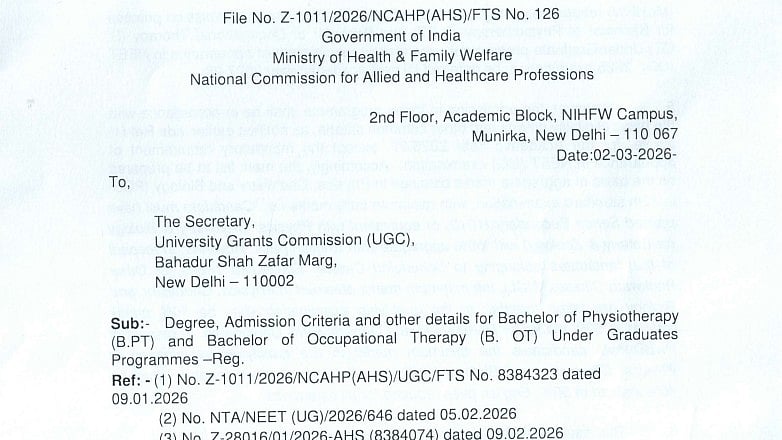If Ragas are sung in the morning and evening depending on one’s moods, either to entertain or soothe the senses, pop or rock music in the same way entertains. It can even put one into a frenzy depending on the subconscious effect it has on the listener. Freddy Kostka recently conducted a talk in Mumbai called ‘The Power of Music’. He shed light on the harmful effects certain musicians and their works can have on unsuspecting young minds.
Excerpts from the interview:
What prompted you to start these talks on the effects of music?
I grew up on a diet of Beatles and Rock ‘n’ Roll and gradually moved to heavier stuff listening to Metal bands. I would listen to the Rolling Stones ‘Sympathy for the Devil’ without realising what I was singing. In 1981, I had a personal encounter with God and that changed my life. Suddenly I found that I had no desire to listen to my rock bands but began
listening to gospel music instead. I saw friends mess up their lives with drugs and other vices. It was in early 1990 that I felt a need to show youth the effect of that music, at that time it was mainly Rock, and the effect it has on our lives. So, I began searching for information.
What about hip hop music that is wrought with foul lyrics?
There are a multitude of songs in Rap/Hip Hop that highlight and promote physical abuse towards women who “Betray” a man’s trust. The use of derogatory terms towards women and encouraging the practise of raping women. In Hip Hop women are sex objects or mindless accessories to men. A common theme in these songs is the words “Part of my collection” or “On the shelf”.
What is the main objective of these talks?
The first presentations in 1992 were primarily about rock groups whose songs promoted rebellion, violence, suicide, sexual immorality and backward masking. Groups like AC DC, KISS, Led Zeppelin, Rolling Stones, Fleetwood Mac, Meat Loaf, Guns n Roses, Metallica, Michael Jackson, Madonna and others. Most groups would have songs that promote multiple categories or all. We would do two separate presentations for youth and parents over the weekend. In schools it was for Std 8 to 10 students. The presentation is about 90 minutes where we show video and audio examples of artistes who in their lyrics speak of the above categories, and their lifestyles off stage. We also show newspaper clippings, quotes to support our claim. Lastly we have case studies and results of the effects of the music on people.
Can you tell us how different the talk is today from what you did in the ‘90s?
As times changed, I felt the need to change the presentation and remove songs that were not current to show newer songs. Around the year 2000 I changed the name to ‘Power of Music’ as the presentation was no longer dominated by Rock music, but included Pop, Rap and Hip Hop. The newer presentations include Spice Girls, Bon Jovi, Shakira, Britney Spears, Lady Gaga, Rihanna, Aerosmith, Eminem, Megadeth, and others. In addition to the above, the latest presentation also includes Taylor Swift, Beyoncé, The Weeknd, Ariana Grande, Billie Eilish and some newer material on Eminem, Rihanna and others. We can also recall Britney Spears getting married for 72 hours, These are all publicity stunts. They should be talking about their music.
How do you go about gathering the information about these songs / music videos?
Back then, I came across Why Knock Rock by Dan and Steve Peters and later Hell’s Bells by Eric Holmberg. Both these were excellently researched and helped me compile my own presentation based on what was current. Thus came the first ‘Rock n Ruin’ presentation in February 1992. Following this my team began getting invites to present it all over the country. Today with YouTube and Google, it’s much easier to find music that has negative messages. I also present reports of studies and surveys which show that sexual content and violent lyrics encourage young people to indulge in similar behaviour.
You base your presentation on four categories, songs that have rebellion, violence, sexual immorality and occult influences. Can you also share a few examples to prove your point?
There are a lot, but I’ll stick to the main ones that appeal to our Instagram-friendly new generation of kids. You have everyone’s favourite classic Pink Floyd offering kids to go against their teachers when they sing their Brick in the Wall — “We don’t need no education, We don’t need no thought control, No dark sarcasm in the classroom, Teachers leave them kids alone, Hey! Teachers! Leave us kids alone! All in all it’s just another brick in the wall, All in all you’re just another brick in the wall.” The group encourages rebellion against authority in the school classrooms.
Spice Girls had a happy way of putting it in their song Do It singing “…I will not be told… I said the rules are for breaking, who made them anyway. Make your own rules to live by. Come on and do it”. Eminem had his song Role Model in which he advices — “Follow me and do exactly what the song says. Smoke weed, take pills, drop outta school, kill people and drink”. Rihanna has songs like We found Love that depict sex, smoking and drugs. Ariana Grande has sexual content in most of her songs. One for example is 34 + 35 that add up to 69. Shakira’s video of Hips don’t Lie is very suggestive.
Artistes that are involved in the Occult, Satanism are in plenty. At one time it was mentioned in veiled terms, but today, however, everything is out in the open. Take for instance Taylor Swift’s famous Eras Tour which is slated to gross over $4 billion. In the stage performances, we see a mock satanic ritual performed by a group of what looks like witches dancing and laughing. Many fans have experienced post-concert amnesia and believe that spells are being cast over the audience. Way back in 2013 at the Grammy awards, her performance was full of occult symbolism.
What about this year’s Grammys? Sam Smith’s Unholy was a brazen performance of satanic rituals with fire, witches and demons tormenting a girl in a cage. In today’s world, evil is regarded as good and vice versa.
Has there been any feedback from the presentation from the young generation and how do they feel about such revelations?
The youth, when faced with the overwhelming evidence of what the songs are promoting and the effect it can have on them, usually say that ‘this has been an eye opener’ to them. Each individual is responsible for the choices they make. My job is to present the material and let them decide. We cannot force them to change, we are here to give them a warning. It’s like a warning on a cigarette packet read by millions around the world who still continue to smoke and hope not to get cancer.







